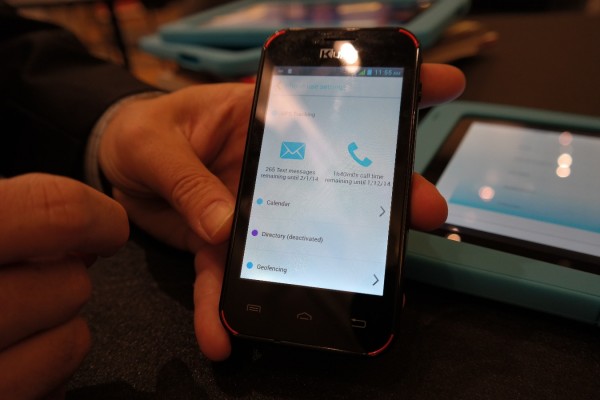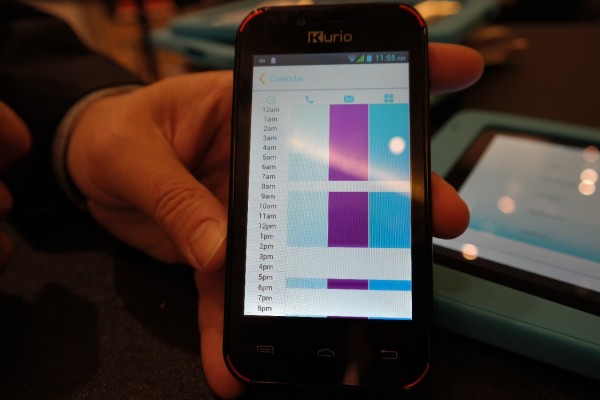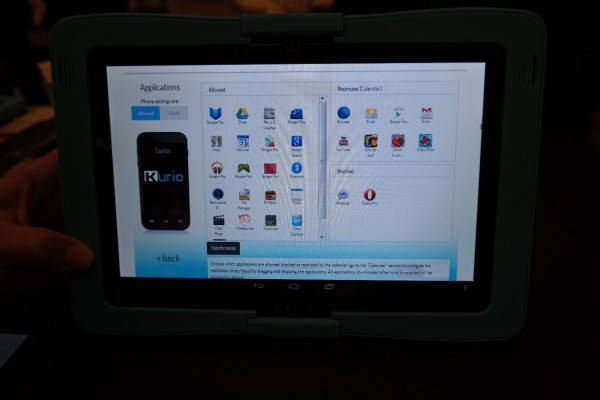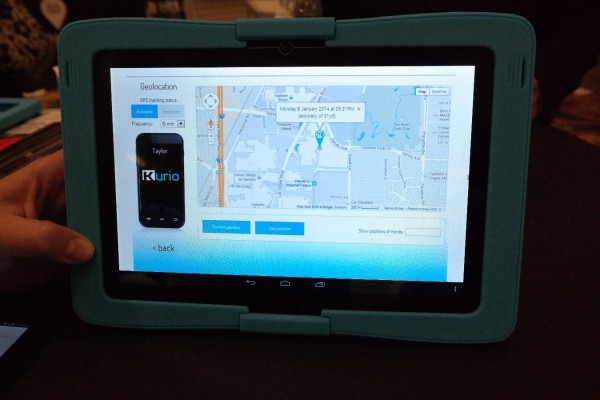Kurio Phone Hands-On: Kids Phone With Parental Controls
A new kid-friendly smartphone offers parents the ability to monitor their children's activities and limit their internet and messaging use.
Kids are getting their first smartphones at younger and younger ages with many elementary schoolers carrying their own handsets. Phones can be powerful tools for keeping children connected with their parents in the event of an emergency or even doing homework, but, when used irresponsibly, they can be a distraction or downright dangerous. Designed exclusively for kids, the $199 Kurio Smartphone packs integrated parental controls and monitoring software that's deeply integrated with the OS, allowing parents to do everything from limiting what apps their kids can install to choosing what hours of the day they can surf the web.
We had a chance to go hands-on with the Kurio Phone and were impressed with how much parents can do to keep track of their kids' activities and make sure they use their phones responsibly. Available for just $199 unlocked and subsidy free, the Kurio Phone can ride on AT&T, Sprint or T-Mobile, but it is only capable of 3G speeds. With a dual-core processor, 512KB of RAM, 4GB of storage and a 4.3-inch, 800 x 480 screen that looked a bit washed out to us, this handset won't be mistaken for a high-end flagship like the Galaxy S4, but it has more than enough performance for most kids.
The phone isn't built to be rugged, but it does have an attractive design with a glossy black body that's accented by either a metallic teal or metallic red ring. The Android 4.2 OS has a stock Android look and feel. The only way you'd know you were running a Kurio is if you look in the notification drawer where a Kurio notification remains active all the time. There's also an app which shows kids what limits their parents have set, including how many minutes of voice calling or text messages they have left if the parent has set a quota.

Kids can also see if their parents have set a schedule for them which restricts their phone use to certain hours or days. Even during a restricted time, your child can dial 911 or reach an emergency contact by tapping an emergency widget on the home screen.

We were much more impressed with the web-based parental control interface than with the on-phone experience. Browsing through the control panel, we saw a menu which enabled us to select exactly which Android apps the phone was able to install. We could also opt to allow our child to install any app from Google Play or none at all. A calendar menu let us set restricted hours for calling, sending messages or using apps. The web browsing menu lets us choose an age range for online filters, but when the phone ships this menu will include advanced options like the ability to filter our pages by content type, excluding adult content, political news, religious information or other controversial topics.

Other menus in the control panel allow you to set alerts that let you know about your child's activity. We particularly appreciated the geofencing feature which lets you set areas on a map so the Kurio Phone will text you when your child enters or leaves them. Imagine setting the school as a location and getting an alert when your child leaves to come home. The phone will also send you an SMS when the child dials an emergency number or when the phone's battery is about to run out.

While you can get a lot of the same parental controls by installing third-party apps on an existing smartphone, the parental control features are built into the Android ROM on the Kurio Phone, making them much harder to defeat. Parents who want a phone that's made to help them manage their kids' mobile activity will find the product particularly intriguing when it ships later this spring. We look forward to putting the Kurio Phone through its paces close to its launch date.
Get instant access to breaking news, the hottest reviews, great deals and helpful tips.
Follow Avram Piltch @Geekinchief and on Google+. Follow us @TomsGuide, on Facebook and on Google+.
